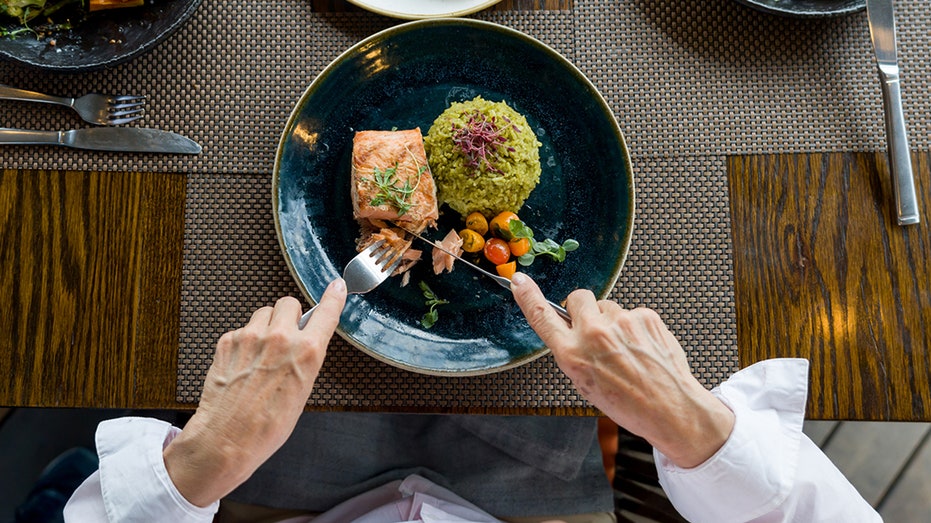6 foods you should be eating for stronger bones, according to nutritionists

As people age, their bones naturally weaken, creating a higher risk of fractures and other injuries.
This condition, often referred to as osteoporosis, occurs more frequently and earlier in women due to menopause-induced bone loss and lower bone mass, according to Healthline.
Osteoporosis can often lead to complications such as chronic pain, disability and premature death in severe cases, as well as pneumonia in older adults.
NATIONAL RAW MILK REGULATIONS LIKELY COMING WITH NEW ADMINISTRATION, SAYS RAW FARM BOSS
Although the condition is more common in women, a 2019 study published by the National Institutes of Health (NIH) found that men were more likely to die one year after a hip fracture than women.
While it may not be possible to prevent osteoporosis entirely, daily nutrition can help support and strengthen bones.
Foods high in calcium, vitamin D, protein, magnesium, potassium and vitamin K are key for strong, resilient bones, according to registered dietitian nutritionist Lauri Wright, director of nutrition programs at the University of South Florida's College of Public Health.
Here are six foods recommended by nutritionists for bone health.
Tofu is a rich source of protein and calcium, according to nutritionists.
Jacqueline Klunk, a dietitian nutritionist in Pittsburgh, shared with EatingWell that most tofu is set in a calcium solution. She recommends that tofu eaters check the label to ensure that this solution is present.
DRINKING DAIRY MILK BRINGS SURPRISING BENEFITS BEYOND JUST BONE HEALTH
A half-cup serving of tofu in calcium solutions contains 861 milligrams of calcium and 22 grams of protein.
Wright added that tofu and soy products contain isoflavones, which may have "bone-protective effects."
In addition to boosting digestive health, prunes can also support bone health.
Michigan-based registered dietitian Grace Derocha told EatingWell that the dried fruit is "jam-packed" with bone-strengthening nutrients like vitamin K, which helps to regulate calcium balance and bone formation.
Prunes also contain manganese, an element that's essential in bone formation, as well as potassium.
EXPERTS REVEAL HIDDEN WAYS SUGAR ACCELERATES AGING BEYOND JUST WEIGHT GAIN
Wright also said, "Emerging research suggests that prunes may reduce bone loss and support bone formation, likely due to their polyphenols, potassium and vitamin K."
EatingWell recommends eating one serving, or about a quarter-cup, of prunes per day for proper bone support.
Yogurt is high in calcium, vitamin D and protein, all of which support bone health, according to Klunk.
For more calcium, the expert advised opting for regular yogurt over Greek yogurt, as it contains nearly half the daily value.
YOGURT IS A HEALTHY SNACK MADE MORE NUTRITIOUS WITH THESE TIPS FROM DIETITIANS
Fortified plant-based yogurts can also be a good source of calcium and vitamin D.
Wright agreed that dairy products, including yogurt, milk and cheese, are among the "richest sources of calcium, which is a critical building block of bone tissue."
A 3-ounce serving of salmon contains 15 milligrams of calcium, nearly meeting the daily serving, according to the U.S. Department of Agriculture (USDA).
Salmon also has ample protein and helpful omega-3 fatty acids, which have been linked to improved bone quality.
Vitamin D is known to be essential for calcium absorption in the body.
Other fatty fishes, like sardines with bones and mackerel, offer the same vitamin D and omega-3 benefits, Wright told Fox News Digital.
THESE FISH ARE THE BEST AND WORST FOR YOUR HEALTH, SAY EXPERTS
Los Angeles-based registered dietitian nutritionist Ilana Muhlstein backed the power of sardines, which include more calcium than salmon.
"It's encouraged to eat the soft bones for even more calcium," she told Fox News Digital. "They also contain vitamin D, which helps with calcium absorption."
Muhlstein added that sardines are "similarly rich in omega 3s and low in mercury and can be great overall for bone health."
Leafy greens are among the best foods for overall health, as they're packed with various nutrients and vitamins.
Kale is a better option in the category, Klunk said, as it's naturally lower in oxalates, chemicals that can interfere with calcium absorption. Spinach, while high in calcium, also contains oxalates.
One cup of raw kale is considered an "excellent source" of vitamin K, according to EatingWell.
Drizzling or massaging kale with a healthy source of fat, like olive oil or avocado oil, will help ensure proper absorption of vitamin K.
Wright also recommends other leafy greens like Bok choy and collard greens, noting their high calcium and vitamin K content.
Nuts and seeds — like almonds, chia seeds or pumpkin seeds — provide bone-supporting elements like magnesium, phosphorus and small amounts of calcium, according to Wright.
Beans and lentils also offer magnesium, phosphorus and protein, which the expert noted are important for "bone remodeling and strength."
CLICK HERE TO SIGN UP FOR OUR LIFESTYLE NEWSLETTER
Tahini, which is made from ground sesame seeds, contains high amounts of calcium, magnesium and phosphorous, which are all essential for bone structure and density, Derocha shared with EatingWell.
Magnesium-rich foods like nuts help regulate the parathyroid hormone, according to Muhlstein, which helps control calcium levels.
Wright stressed that calcium alone isn't enough to support bone health, as its proper absorption also requires vitamin D.
"Don't forget supporting nutrients like magnesium, vitamin K and protein," she advised.
For more Lifestyle articles, visit www.foxnews.com/lifestyle
"Spread calcium intake throughout the day," Wright suggested. "The body absorbs calcium best in smaller doses (about 500 milligrams at a time), so space out sources, especially supplements."
The expert also warns against "bone-harming" habits, such as consuming too much sodium, caffeine or alcohol, or not getting enough fruits and vegetables.
What's Your Reaction?
 Like
0
Like
0
 Dislike
0
Dislike
0
 Love
0
Love
0
 Funny
0
Funny
0
 Angry
0
Angry
0
 Sad
0
Sad
0
 Wow
0
Wow
0























